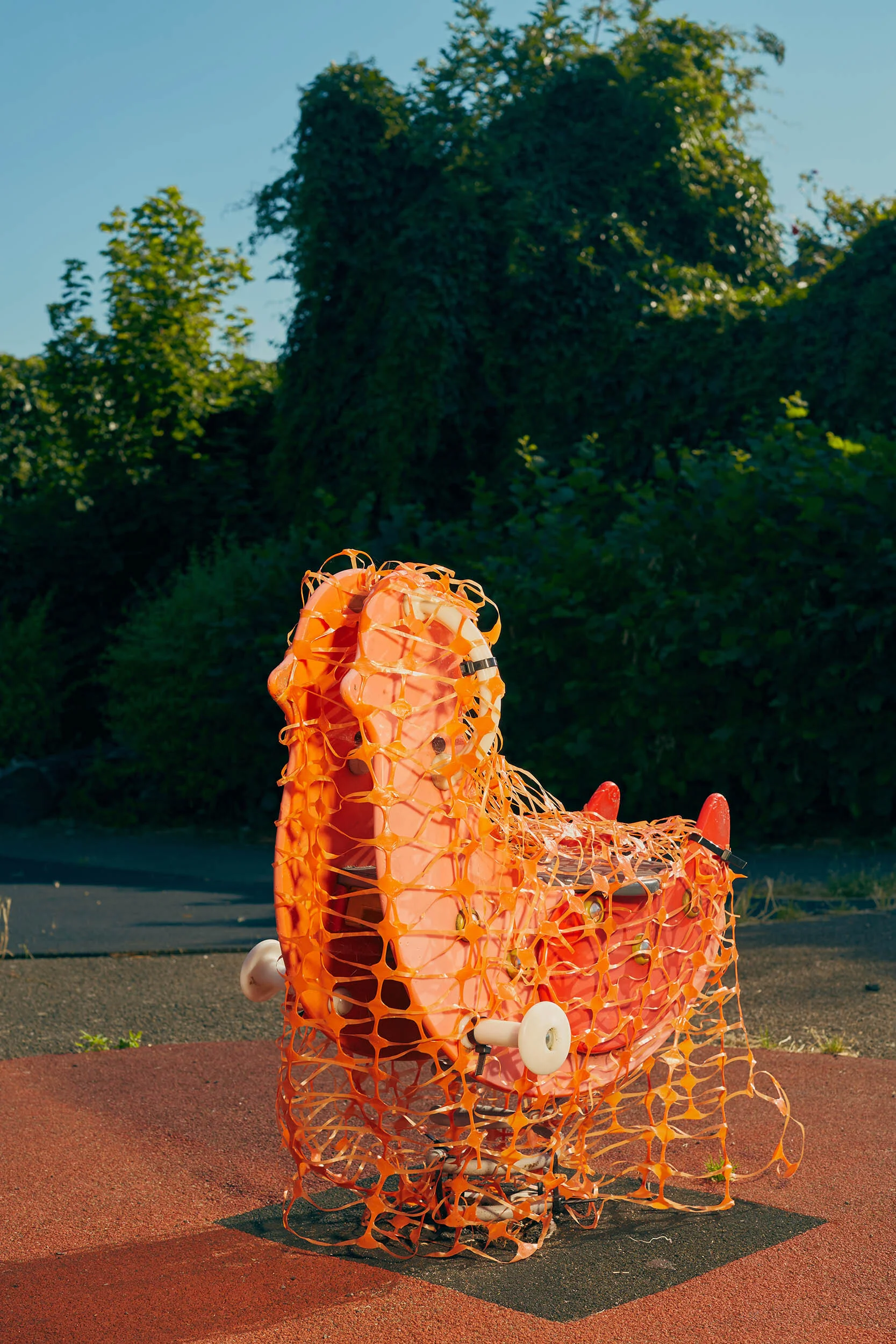Life Restructured
The lockdown that began in the UK on 16 March 2020 coincided with the most beautiful spring anyone could remember. For some of us this was the first time we had stopped still long enough to notice. The days were hot and humans couldn’t travel, couldn’t congregate. We couldn’t leave our houses, except for essentials, and many of our houses were small – too small – and lacked gardens. Windows opened and front doors were left ajar. People made their most immediate outdoor space a place for waiting, and it felt like we were all waiting – sunbathing, reading, drinking, working, but most of all waiting. We colonised small corners: the gap between bins for a hammock, sitting on the front steps, the roof, the pavement, the road.
The restructuring of our days turned the communal back onto the individual. Our homes had to be everything; there was nowhere else to work out, to be sociable, to eat, to relax. Temporary and precarious housing arrangements were suddenly fixed. In an area like East London, where residents live nose to tail, it was impossible to maintain the old distinctions. The pavement became an office. The non-spaces were occupied.
A diffuse ennui settled over the quiet streets. You could hear birdsong, but not the cry of children in a playground. In seemingly absurd acts of social control, benches were caged off and park swings tied up with hazard tape. Sitting in the park was forbidden, so police cars drove slowly over the grass, forcing those who had risked it – just to be outdoors – to jump up and move on. It wasn’t a lockdown like some countries’ lockdowns. There were no soldiers in our streets. But we were anxious, afraid, bored. As the weeks passed, some people settled into their new lives. At last they could rest. At last they saw their kids, got to know their neighbours. Could hear themselves think. Learned to cook.
Olivia Harris’s photographs, which capture that long moment, that dreamy suspense, also show our anxious attempts not to lose ourselves in it. Time seemed not to move forward but to slowly engulf us. Walking around the streets in the early evening, as our strange spring turned into summer, we saw one another as we hadn’t before. Necessity made us vulnerable; our inventiveness and need were on clear display. Small efforts to change the monotony of the days or improve their aspect were as funny as they were necessary. Birthdays were whispers. We dressed up just to sit on our front steps. We tried to cut our own hair.
We watched the news but there was much we didn’t see. The people who left their homes every morning because they worked in a hospital or a supermarket or a care home. The people who were ill – who were taken out of their houses on stretchers, oxygen masks attached to faces. The front doors that were definitely closed and that bore handwritten signs: ‘Self-isolating’. They might as well have said ‘plague’. The silly and small attempts to hold onto some semblances of our old lives were also acts of desperation. People badly wanted to help. It seemed unbearably cruel not to touch.
The divisions – between the furloughed and the frontline, the overworked and the unemployed, the making-the-best-of-it and the falling to pieces – weren’t allayed by clapping in the streets. But they may have sharpened our priorities.
by Alice Spawls
